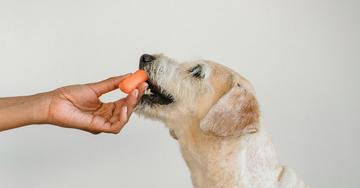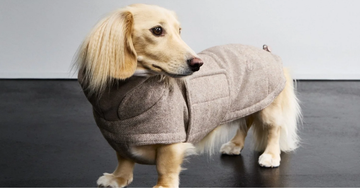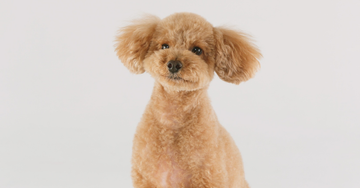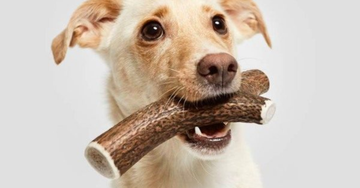Help your dog lose weight healthily
It is estimated that more than one in three dogs in Denmark is overweight. So you are not alone if your dog has become a little too chubby.
Fortunately, with patience and a few consistent habits, you can help your dog lose weight – without him feeling unnecessarily hungry. Exercise is healthy, but it is primarily through feeding that you can make a difference in weight.
Why do dogs gain weight?
Often, being overweight is caused by small everyday habits. Consider in particular:
- Lots of treats: The calories add up quickly – so adjust the daily feeding amount if treats are given.
- Several people in the family feed: Coordinate who feeds when so that the bowl doesn't get "a little extra full" during the day.
- Small children in the home: Food dropped from the highchair often ends up with the dog.
- Suggested doses: Feeding tables are just guidelines. An older dog weighing 20 kg does not have the same needs as a young, active dog weighing 20 kg.
The most important effort: the feed
- Cut down your daily intake by 10–15% and see the effect over 2–3 weeks.
- Weigh the food (use a kitchen scale) and divide it into 3 smaller meals instead of one large one.
- Add water to the dry food to make it more filling (only if your dog likes it).
- Coordinate treats – and choose lean varieties in small pieces, especially when exercising.
- Special diet? Stick to the diet and reduce the amount – don't change unnecessarily.
Flaxseed hulls may increase satiety
Fiber fills you up without adding extra calories. Always mix flea seed husks with water and give twice daily:
- Up to 5 kg: ½ tsp + 3 tbsp water
- 5–10 kg: 1 teaspoon + 0.5 dl water
- 10–20 kg: 2 tsp + 1 dl water
- Over 20 kg: 1 tablespoon + 1.5 dl water
Diet food – pros and cons
A diet food often contains more fiber, which increases satiety (and typically also more stool). It can be a great tool – but remember to still measure the amount carefully . You can easily get too many calories, even on a diet food.
BARF (raw feeding)
- Raw-fed dogs are less likely to be overweight (lower carbohydrate content).
- You may consider partially replacing dry food with BARF to reduce calorie intake.
- If your dog has a sensitive stomach or allergies, consult your vet before switching.
See all MUSH BARF here
Exercise – still important
Feel free to increase your dog's daily activity at a pace that your dog can keep up with: longer sniffing trips, light play, swimming or more short walks. Exercise supports weight loss and increases well-being.
Patience and measurement
- Weigh your dog every 2–4 weeks at the same time of day.
- If you're aiming for 1–2% weight loss per week , you're on the right track.
- Small, consistent changes work best – and are most lasting.
Good luck – your dog will thank you for your efforts.
Kind regards
Cand. Med. Vet.
Stine Luise Krogh Christensen





